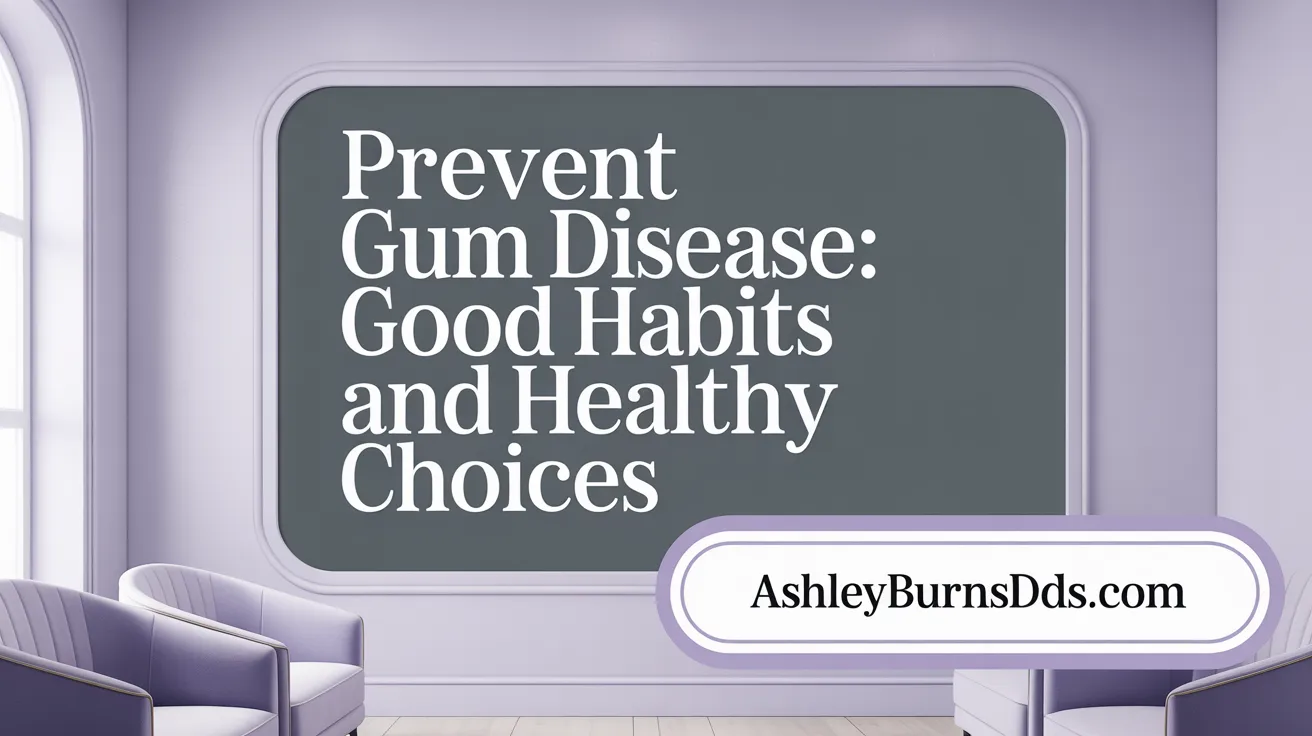Understanding the Vital Role of Gum Care
Maintaining healthy gums is fundamental not only for a radiant smile and strong teeth but also for overall health. Gum disease, a prevalent yet preventable condition, can lead to serious dental and systemic health issues if neglected. This article explores effective methods and lifestyle choices to preserve gum health across all life stages, empowering you with knowledge to prevent disease and maintain oral wellness for life.
The Importance of Gum Care for Overall Health

Why is oral health, particularly gum care, important?
Caring for your gums is essential for more than just having a bright smile. Healthy gums form the foundation for healthy teeth but also serve as a critical barrier against infections that can spread beyond the mouth.
Gum disease begins with plaque buildup along the gum line, leading to inflammation, redness, bleeding, and swelling. If not properly managed, this can progress to more severe conditions like periodontitis, which destroys supporting bone structures and may ultimately cause tooth loss.
Beyond oral health, there is a significant link between gum health and overall wellbeing. Bacteria from infected gums can enter the bloodstream, contributing to systemic health problems. Research shows that poor gum health has been associated with increased risk of cardiovascular diseases such as heart attacks and strokes.
Furthermore, gum disease can complicate pregnancies, increasing the risk of preterm birth and low birth weight. It may also influence the development of diabetes and has even been connected to cognitive decline and dementia.
Maintaining good oral hygiene — brushing twice daily with fluoride toothpaste, flossing daily, and visiting the dentist regularly — helps prevent gum inflammation and tissue damage. Proper care can halt the progression of gum disease and reduce the risk of bacteria entering the systemic circulation.
In summary, good gum health is a crucial component of overall health. Protecting your gums supports your immune system, reduces the risk of serious conditions like heart disease and diabetes, and keeps your smile healthy for years to come.
Establishing Effective Oral Hygiene Routines

What are the best practices for maintaining healthy gums?
Maintaining healthy gums requires a comprehensive daily routine that focuses on both cleaning and supporting gum tissue. It starts with brushing your teeth at least twice a day using a fluoride toothpaste and a soft-bristled toothbrush. Proper technique involves angling the brush at 45 degrees toward the gum line and making gentle, circular motions to remove plaque effectively. Replacing your toothbrush every three to four months ensures optimal cleaning.
In addition to brushing, daily flossing or using interdental cleaning tools like water flossers helps remove food particles and plaque from between teeth and below the gumline, areas that toothbrushes can’t reach. Regular tongue cleaning or scraping reduces bacteria that cause bad breath and plaque buildup. Incorporating an antibacterial mouthwash can further support oral health by killing bacteria.
Routine dental checkups, ideally every six months, are essential for professional cleanings and early detection of gum disease. Supporting these habits with a balanced diet low in sugar, avoiding tobacco, and staying well-hydrated contribute significantly to maintaining healthy gums. Early intervention and consistent care help prevent inflammation, bleeding, and recession, preserving your gum and overall oral health.
How can effective oral hygiene routines be established and maintained?
Establishing a successful oral care routine begins with consistency. Set specific times each day—preferably in the morning and before bed—for brushing and flossing. Each session should last at least two minutes and involve thorough cleaning of all tooth surfaces, including the inner, outer, and chewing surfaces.
Using products endorsed by dental associations, such as those with the ADA Seal of Acceptance, assures safety and effectiveness. Incorporate daily flossing, guiding about 18 inches of floss in a gentle C-shape around each tooth to clean beneath the gumline without causing irritation.
Routine visits to the dentist every six months are vital for professional cleaning, plaque removal, and examining for signs of gum issues. Complement your routine with a healthy diet rich in vitamins C and D, which support gum repair and immune defenses. Limit sugary and acidic foods, and drink plenty of water to wash away bacteria and food debris.
Supporting habits like avoiding tobacco and managing stress also bolster your oral health. Staying informed about proper techniques and making these habits a part of your daily lifestyle ensures your smile remains healthy and vibrant over the years.
Preventing Gum Disease Through Lifestyle and Oral Care

How can gum disease be prevented through oral hygiene and lifestyle choices?
Gum disease stems from bacterial growth and plaque buildup along and under the gumline. Maintaining good oral hygiene is essential to prevent its development. Brushing teeth at least twice a day with a soft-bristled toothbrush and fluoride toothpaste helps remove plaque before it hardens into tartar. Incorporating daily flossing or using interdental cleaners ensures debris and bacteria are cleared from between teeth where toothbrushes cannot reach.
Using an antibacterial mouthwash adds an extra layer of defense by reducing harmful bacteria that contribute to gum inflammation. Regular professional cleanings by a dentist effectively remove tartar and help detect early signs of gum disease, which can often be reversed if caught early.
Lifestyle choices significantly influence gum health. A diet rich in vitamins, especially vitamin C and calcium, supports tissue repair and immune function, helping gums stay healthy. Limiting sugary foods and drinks reduces plaque formation.
Avoiding tobacco products is crucial because smoking weakens the immune system and hampers healing, increasing the risk of developing advanced gum disease and tooth loss. Excessive alcohol consumption can also irritate gums and impair healing.
Managing stress and staying well-hydrated contribute positively to gum health. Stress weakens the immune response, making it harder for the body to fight off infections. Drinking plenty of water washes away food particles and bacteria, supporting overall oral cleanliness.
In summary, a combination of diligent daily oral care, a balanced diet, avoidance of harmful habits, and regular dental visits forms the foundation for preventing gum disease and maintaining long-term gum health.
Recognizing and Responding to Gum Health Issues

What are the common signs and symptoms of gum health issues?
Recognizing early signs of gum disease is essential for prompt treatment. Common symptoms include gums that appear red, swollen, or puffy, and which may bleed easily during brushing or flossing. Persistent bad breath or a bad taste in the mouth can also be indicators. You might notice that your gums are receding, exposing more tooth surface or roots.
Tenderness or pain when chewing and loose or shifting teeth are additional warning signs. Some people observe a shiny or glossy surface on their gums or dark red and purple discoloration in more severe cases.
In advanced stages, pus may be visible between teeth and gums, and the teeth might seem longer due to gum recession. Changes in how your teeth fit together strongly suggest that gum health is deteriorating.
Early detection often results from paying attention to these symptoms. Maintaining good oral hygiene and consulting a dentist at the first sign of trouble can prevent the progression of gum disease, which might otherwise lead to tooth loss or systemic health issues.
Adapting Gum Care Throughout Life Stages

How does gum health change during different life stages?
Gum health evolves considerably from childhood through old age, influenced by hormonal shifts, lifestyle habits, and natural aging processes.
In childhood, establishing strong oral hygiene habits early helps develop resilient gums. Regular dental checkups, fluoride use, and a balanced diet rich in vitamins support healthy gum development.
During adulthood, factors such as stress, tobacco use, dietary choices, and hormonal fluctuations can pose challenges to gum health. Maintaining consistent routines—brushing twice daily with fluoride toothpaste, flossing daily, and attending regular dental visits—becomes especially important.
In senior years, gums may recede, and saliva production often diminishes due to age or medications. These changes increase vulnerability to gum infections and tooth loss. Using age-appropriate oral care products, such as specialized mouthwashes and gentle toothbrushes, alongside professional care, helps mitigate these risks.
Overall, maintaining adaptable, lifelong oral hygiene routines tailored to each life stage supports healthy gums and helps prevent periodontal disease, ensuring better overall health.
Integrating Diet and General Health for Optimal Gum Function

What preventive measures can be implemented for long-term gum health?
Achieving long-term gum health relies on consistent and effective oral hygiene routines. Brushing at least twice daily with a soft-bristled toothbrush and fluoride toothpaste removes plaque and reduces the risk of gum inflammation. Incorporating daily flossing or interdental cleaning is essential to eliminate food particles and plaque from between teeth, areas that brushes can't reach.
Regular dental checkups, ideally every six months, allow for early detection of gum issues and professional cleaning to remove tartar buildup. For those at higher risk, more frequent visits—every 3 to 4 months—may be necessary. Using antiseptic mouthwashes and considering treatments like scaling or root planing help manage plaque and bacteria.
Lifestyle choices significantly influence gum health. Quitting smoking, managing stress, and eating a diet rich in vitamins C and calcium all support gum tissue repair and immune responses. Promptly consulting with a dentist when experiencing bleeding, gum recession, or other symptoms ensures ongoing protection and prevents severe complications.
What general health tips support both gum and overall oral health?
Maintaining general health plays a crucial role in preserving gum and oral health. Daily habits such as brushing twice a day with fluoride toothpaste and a soft toothbrush help remove plaque and bacteria. Cleaning between teeth with floss, dental picks, or water flossers complements brushing efforts.
Eating a nutritious, balanced diet rich in fruits, vegetables, lean proteins, and dairy supports gum tissue repair and immune defenses. Limiting sugary and acidic foods reduces the risk of plaque accumulation, which can lead to gum disease.
Staying well-hydrated by drinking plenty of water helps wash away food debris and bacteria, promoting saliva production that naturally neutralizes acids and supports remineralization. Avoiding tobacco and excessive alcohol consumption minimizes tissue damage and enhances healing processes.
Routine visits to the dentist every six months allow early detection and treatment of problems like cavities and gum disease. Managing systemic conditions such as diabetes and staying current with vaccinations like HPV can lower risks related to oral cancers.
Incorporating these practices daily not only maintains healthy gums but also benefits overall health, fostering a stronger immune system and reducing systemic health risks such as heart disease, stroke, and diabetes.
Commit to Lifelong Gum Health
Maintaining healthy gums is a lifelong commitment that involves consistent oral hygiene, a balanced lifestyle, and routine professional dental care. By understanding the importance of gums to overall health, recognizing early signs of trouble, and adapting care through life’s stages, you can prevent gum disease and preserve your smile for years to come. Embrace these best practices and lifestyle strategies to ensure your gums remain strong and healthy, supporting not only your oral well-being but also your general health and quality of life.
References
- Taking Care of Your Teeth and Mouth
- 6 Ways to Keep Your Gums Healthy
- Oral Hygiene: Best Practices & Instructions for Good Routine
- Your Gums Change as You Age: Gum Health Through the ...
- Oral health: A window to your overall health
- Essential Strategies for Maintaining Healthy Gums and ...
- How to Keep Your Gums and Teeth Healthy
- 5 Essential Tips for Healthy Gums: Expert Advice
- Gum Disease in San Antonio | Top Tips for Healthy Gums
